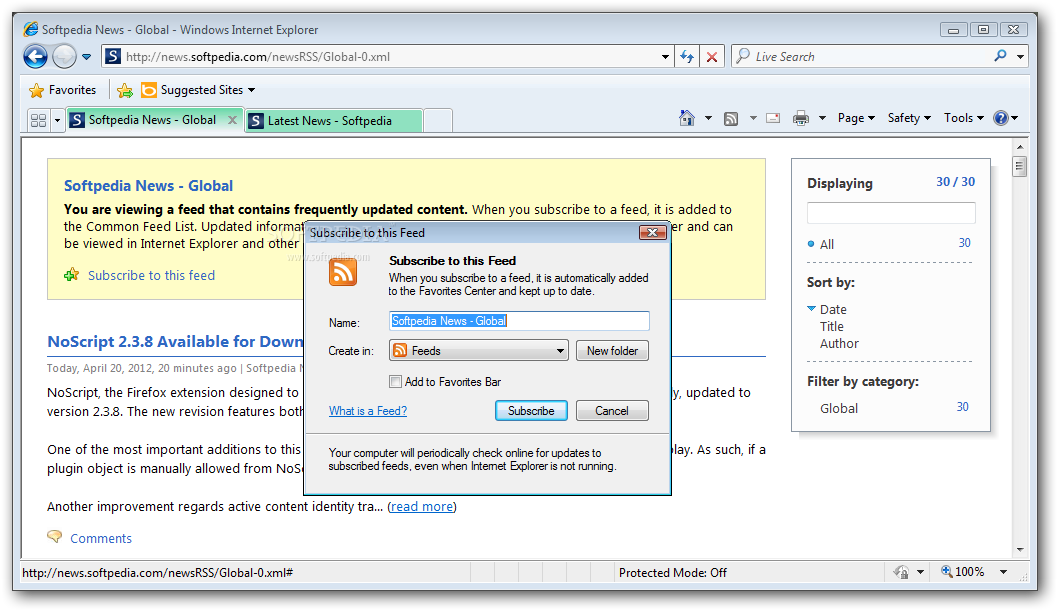
The reason being, Vista, Server 2008 and Server 2012 cannot be updated to IE 11. Internet Explorer 10 will continue to be supported in Server 2012. Update: Internet Explorer 9 will continue to be supported in Windows Vista and Server 2008.

Also, Microsoft is encouraging business and enterprise customers that have proprietary apps that are build on older versions to use Enterprise Mode in IE 11. If you’re a business or enterprise customer, you can find out more about this development here. For more on that read our article: How to Change the Default Web Browser in Windows 10. You also have the option to switch to a different browser like Chrome or Firefox if you’re running an older version of Windows.Īnd, if you’re running Windows 10, and don’t like Edge, you can change the default.

Of course, if you’ve upgraded to Windows 10, the default browser is Microsoft Edge and IE 11 is also built-in. And we reported about this move last month as well.īut this latest reminder from Microsoft should remind everyone to make sure they upgrade to IE 11. Microsoft announced it was going to end support for old versions back in August 2014. This move has been known for a long time now and shouldn’t come as a surprise. Internet Explorer 11 is the last version of Internet Explorer, and will continue to receive security updates, compatibility fixes, and technical support on Windows 7, Windows 8.1, and Windows 10. Microsoft says the following on its IE End of Support page:īeginning January 12, 2016, only the most current version of Internet Explorer available for a supported operating system will receive technical supports and security updates. Internet Explorer 11, Windows 7, Mozilla/5.0 (Windows NT. That would require major changes to the OS, changes that only Microsoft could make. Running IE8 on Windows 10 is not going to happen. If there is someday an IE12 and Windows 10 was upgraded to it then reversion to IE11 would be possible, but no further. If you continue to use those versions, you’ll be more vulnerable to attacks. Internet Explorer 10, Windows 8, Mozilla/5.0 (compatible MSIE 10.0 Windows NT 6.2 Trident/6.0). At the present time Windows 10 is compatible only with IE11. The little blue e that youll see in your taskbar isnt Explorer though, its. Also why would you want to put I.e 8 on W10 There's is loads of better and faster browser out in the ether. Then again, they might just switch to another browser altogether.With Microsoft ending support for the legacy versions of IE, it means those versions will receive no more security updates or technical support. On Windows 10, the most recent version of the browser is Internet Explorer 11. You can't, ie 8 got pushed the ie 11 in W8, now W10 dies include ie 8,but Microsoft have a new browser called Edge designed for W10. Those users are about to become a security risk, so Microsoft must be hoping that its End of Life warning encourages at least few million to upgrade. Despite this, though, there are still thought to be several hundred million users using soon-to-be-obsolete versions of Internet Explorer.

And in March last year, the company relegated IE to legacy status, meaning that the browser will be kept around mostly for the sake of enterprise compatibility. The first one gives you direct access to various online services just by right-clicking anywhere on the web page or on highlighted text. What new functionlity does IE 8 bring Internet Explorer 8 includes two main new tools: one is Accelerators (previously known as Activities), and the other is Web Slices. Almost everyone has used some version of it, and you can be sure all websites will support it. This move has a been a long time coming, with Microsoft announcing the end of support for IE 8, 9, and 10 back in August 2014. Internet Explorer 8 is Microsoft's incredibly popular web browser. A recently-announced patch will deliver the last few bug fixes, as well as an End of Life notification telling users to upgrade to IE 11 or Microsoft Edge - the company's successor to Internet Explorer, built for Windows 10. The end of support means that these older versions of Internet Explorer will no longer receive security updates or technical support, making anyone who uses them much more vulnerable to hackers. Microsoft is ending support for Internet Explorer 8, 9, and 10 next week on January 12th, releasing a final patch encouraging users to upgrade to one of the company's more recent browsers. Internet Explorer 8, 9 and 10 die today but Microsoft missed a trick with Edge


 0 kommentar(er)
0 kommentar(er)
